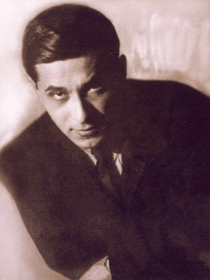 I enjoy NBC's Deal or No Deal. I know it's totally low-brow, but there's something about it that grabs and holds my attention. And yes, the models are pretty spectacular. Howie Mandel makes it interesting, although he's a much better comic than gameshow host.
I enjoy NBC's Deal or No Deal. I know it's totally low-brow, but there's something about it that grabs and holds my attention. And yes, the models are pretty spectacular. Howie Mandel makes it interesting, although he's a much better comic than gameshow host.However, the show has become very predictable. It's almost a formula. That's probably by design, because they've found their niche and don't want to alienate or disappoint the audience.
First of all, the contestants have pretty much merged into a single "type." They all have a hard-luck story and really need the money. But they aren't very smart. More than any other common denominator, they are overcome by greed when they make it onto the program.
Here's how a typical show goes:
The overly energetic contestant has an abundance of false confidence. He or she is "certain" the selected case contains the million dollars. Absolutely. No doubt. Of course in the first round the actual million dollar case is revealed, but this doesn't seem to shake the contestant's previous belief that he or she possesses some sort of psychic skills.
At some point in the game the banker will offer six figures. Probably on the order of $130,000 to $180,000. But the contestant sees $250,000 - $300,000 - even $500,000 still on the board and assumes one of these is attainable. Or course the idiotic family and friends all yell "NO DEAL - NO DEAL" - "ONE MORE - ONE MORE". Without fail, the next "one more" case is the highest amount on the board and the next offer drops dramatically. Everyone yells, "It's OK. It's OK." But it's not. At this point the contestant is totally screwed and must continue to open cases as the offers drop significantly.
The clueless contestant finally accepts a deal for a few hundred dollars when it becomes obvious that the coveted case probably contains $25.
What I find particularly amusing is when Howie explains the odds to the contestant near the end of the game, trying desperately to convince him or her push the frickin' button and not get burned. "You have a one in three chance that one of two cases have at least $75,000 or more." You can see the contestant's eyes glaze over. All he or she can see is that one remaining $250,000 case shown on the board. At this point, they are playing the lottery. They are spending their grocery money to buy a Megabucks ticket. And at this point the producers of the show are counting on giving away $100 instead of a million, because greed never wins. Not a bad payout for a popular prime time Network show.
And I think this has become the primary appeal of Deal or No Deal. At first we wanted to see someone beat the banker and walk out with a ton of money. Now we want to see a train wreck. We want to see someone self-destruct. We want to see someone turn down hundreds of thousands of dollars and end up with pocket change.
More often than not, we get what we want. Too bad.


1 comment:
http://eekshop.com
A driving driver's licence A passport A national identity card A utilities amount of money (electricity, gas, water, landline telephone price ability tax bill at least rates bill A bank statement,don't you think a lot fewer than six a number of years old A debit or otherwise credit card
Post a Comment